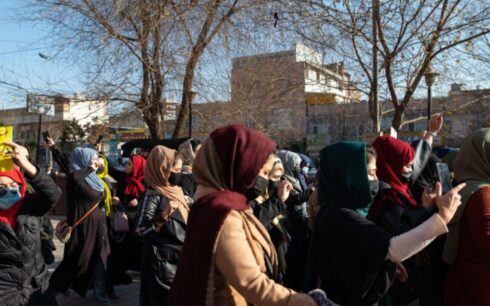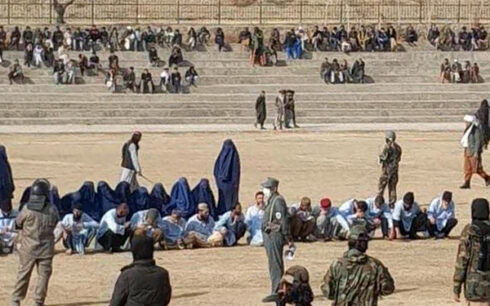A young woman, among thousands affected by the Taliban’s ban on higher education for women, describes the profound impacts of the continued closure of universities. The lack of access to education, she said, has driven many, including herself, into depression and forced marriages.
For Banafsheh, 22, the trajectory of her life shifted dramatically when the Taliban barred Afghan women from attending university. Once determined to pursue a career in medicine, she now faces a future marked by despair and an arranged marriage.
Banafsheh, who spoke under a pseudonym for her safety, completed high school but saw her ambitions collapse when the Taliban prohibited her from taking the national university entrance examination last year. The psychological strain was immense. “I watched my brother and cousin register for university entrance exams, while I couldn’t even consider it,” she said. “The pressure was unbearable. I took several of my father’s pills. My sister found me in time and rushed me to the hospital. When I woke up, it felt like my world had crumbled.”
Following her recovery, Banafsheh was compelled by her family to marry. Her story reflects the broader struggle faced by many young Afghan women contending with the Taliban’s strict policies that have sharply curtailed their rights. “These restrictions have turned our lives into a nightmare, fostering domestic violence and stealing our futures,” she said.
Banafsheh had long dreamed of becoming a doctor and serving her community. “Those dreams are now buried,” she said. “The government’s decisions have destroyed the aspirations of millions of girls like me.”
The impact of the education ban is widespread. Marsal, another high school graduate, expressed similar sentiments. “Without access to education, we are trapped and vulnerable to forced marriages and domestic abuse,” she said.
The Taliban’s Ministry of Education recently announced the registration for the 2024 university entrance examination for high school and madrasa graduates. Yet, for the third consecutive year, it remains silent on whether girls will be permitted to participate.
According to the United Nations Educational, Scientific, and Cultural Organization (UNESCO), around 2.5 million girls in Afghanistan have been denied their right to education, representing 80 percent of school-aged girls in the country.
The Taliban’s policies have drawn widespread condemnation from international organizations, exacerbating the plight of Afghan women and girls who now face not only educational barriers but also the threat of forced marriages and social marginalization.





